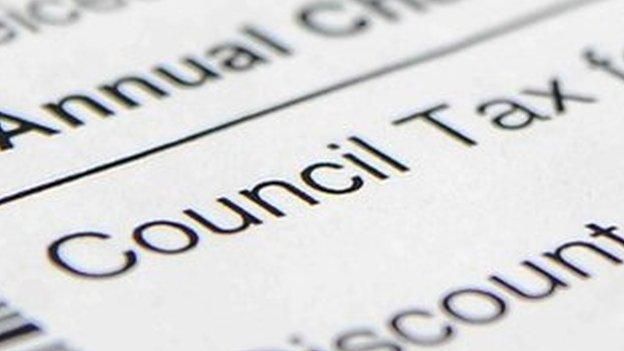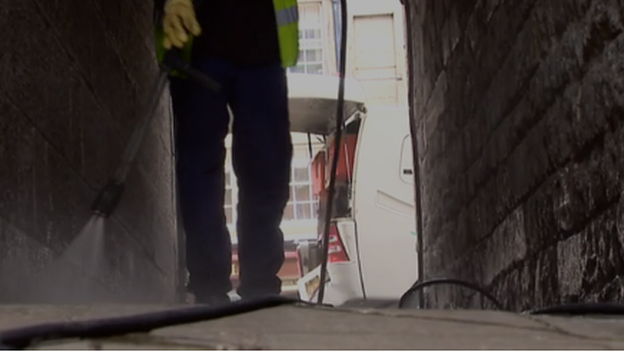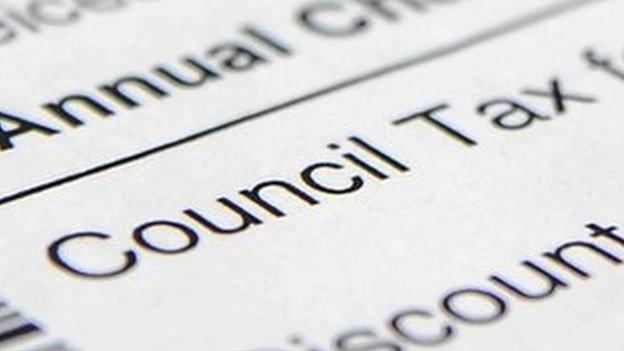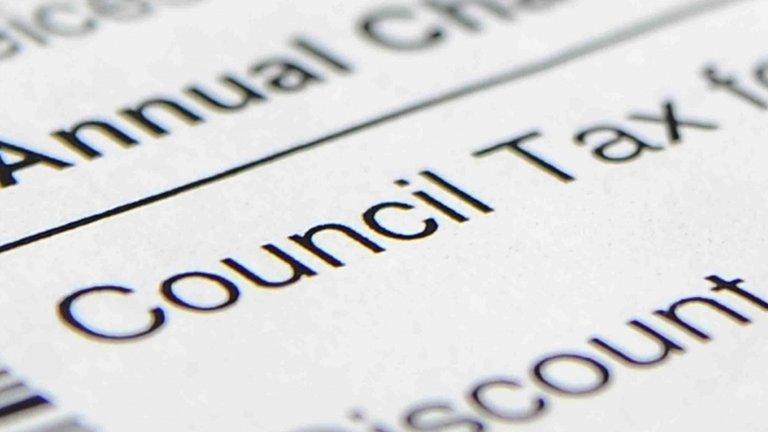Opinion 'split' over council tax reform
- Published

Opinion is split on how to reform local taxation in Scotland, according to a commission looking at alternatives to the council tax.
The commission has so far received more than 200 written submissions from organisations and individuals.
Two thirds of respondents thought the current system was unfair but opinion was divided on alternatives.
Possible options include a local income tax, a land value tax and reforms to make the council tax fairer.
The Commission on Local Tax Reform, external was established last year by the Scottish government and Cosla, which represents local authorities.
The council tax - which has been frozen since 2007 - typically raises about 15p of every pound councils spend. Most of their money comes from the Scottish government.

Councils get the majority of their budget to pay for local services from the Scottish government
The majority of respondents to the commission's call for evidence believed the council tax was unfair.
They cited several reasons for this:
The tax was not linked to a person's ability to pay and that poorer households paid proportionately more than richer ones
It hit vulnerable households and families with children, older and disabled people and carers
Councils needed to be able to raise a greater proportion of their budgets to improve local democracy and accountability
However, respondents also highlighted some of the current system's strengths, including what they considered to be its "efficiency and stability".
Local government minister Marco Biagi MSP, who is also co-chairman of the commission, said: "The findings of our formal call for evidence suggest very strongly that there are a majority of people in Scotland who agree that the current system of council tax is unfair and in need of reform.
"What is also clear is there are a wide range of opinions as to what a potential replacement for the present system would look like and how it would operate, echoing many of the views we have heard from the more than 4,000 people who have engaged with us so far.
"The commission takes the findings of this analysis very seriously and we will use these to shape a report that will allow everyone to understand what any alternative local taxation systems would mean to the people of Scotland."
'Challenges of change'
Councillor David O'Neill, president of Cosla and commission co-chairman, added: "By engaging with as many people and organisations as possible through this call for evidence, questionnaire and public engagement events, we are making sure that the views of people the length and breadth of Scotland are a fundamental pillar of our efforts to set out a range of alternative tax models that can be considered by whichever government is formed next May."
A separate report produced for the commission earlier this month looked at the way local taxation operated across the developed world. It argued that reforming the council tax could be challenging and that other systems of local taxation all had pros and cons.
The commission, which is seeking views through its online questionnaire,, external is due to produce its report in the autumn. It will not recommend one single idea or system for replacing the council tax.
Instead, it is likely to present a full analysis of various options which could colour the debate within political parties ahead of next year's Scottish election.
- Published7 August 2015

- Published30 June 2015
